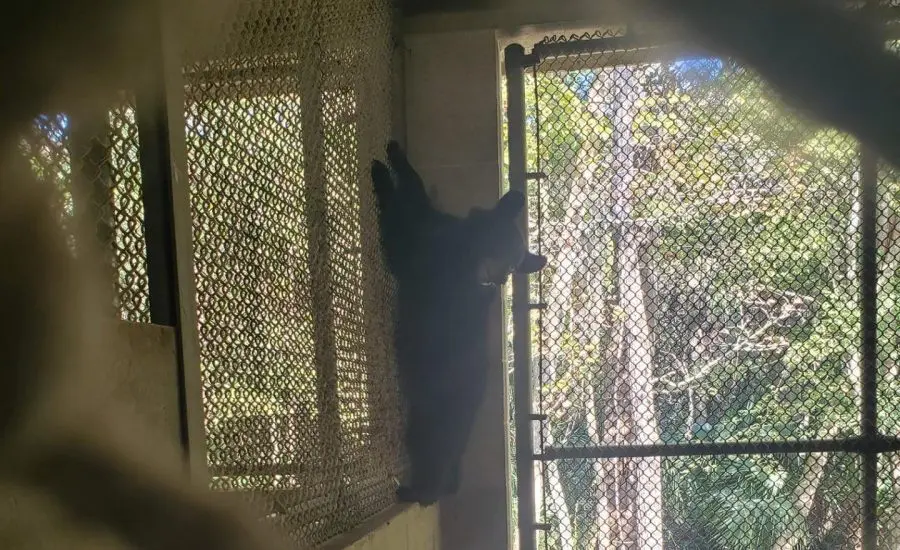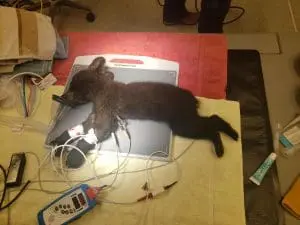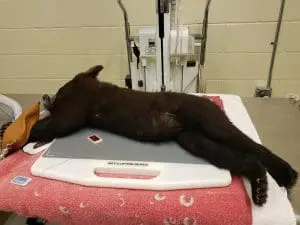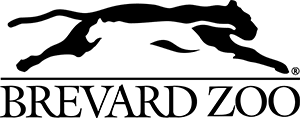

This little Florida black bear cub will be headed to her natural range soon! She recently had an exam at her temporary home at Homosassa Spring Wildlife State Park.
Editor’s Note: Fruit Cup is back in her natural range!
Earlier this year, we shared that our Zoo would give critical care to a Florida black bear cub on her rehabilitation journey with Florida Fish and Wildlife Conservation Commission. We’re so excited to provide an update on this cub who spent two weeks with us in August receiving medical and nutritional care: She’ll be heading back to her natural range this December!
This abandoned Florida black bear cub was brought to us in dire need of help after being found at a waste facility in Okahumpka, Florida.

A photo of the cub at her intake exam.
We agreed to take the cub in, and upon her arrival at the Zoo, our animal care staff was shocked to find that the young cub—estimated to be six and half months old—weighed just eight pounds.
“A bear at her age should have weighed at minimum 25 pounds,” said Kyle Donnelly, one of our two veterinarians.
Left to fend for herself without her mother, the cub must have been hungry, and yet she initially refused food from our animal care team. Her keepers affectionately named her “Fruit Cup” after one of the first food items they could get her to eat.
Little by little, the cub began accepting more food. A nutritious diet of blueberries, strawberries, apples, blackberries, and more, along with world-class veterinary care, helped her put on weight and recover her strength.
After less than two weeks, the cub had nearly doubled in weight and was strong enough to be transferred to a partner bear rehab facility to live alongside other rescued cubs.

A photo of the cub during her final exam. Look at that belly!
Our director of animal programs, Lauren Hinson, and our area supervisor of Wild Florida, Marc Franzen, recently helped FWC with pre-release exams for Fruit Cup and seven abandoned other cubs who are set to be sent to their natural range.
“She left Brevard Zoo as a 14-pound cub and is now 50 pounds!” shared Lauren.
We’re so thankful to have been able to lend our expertise in animal care and nutrition to help this young cub on her rehabilitation journey. World-class diets prepare with love and expertise, help the animals who come into our care – even for just two weeks – grow, heal and live their best possible lives.
